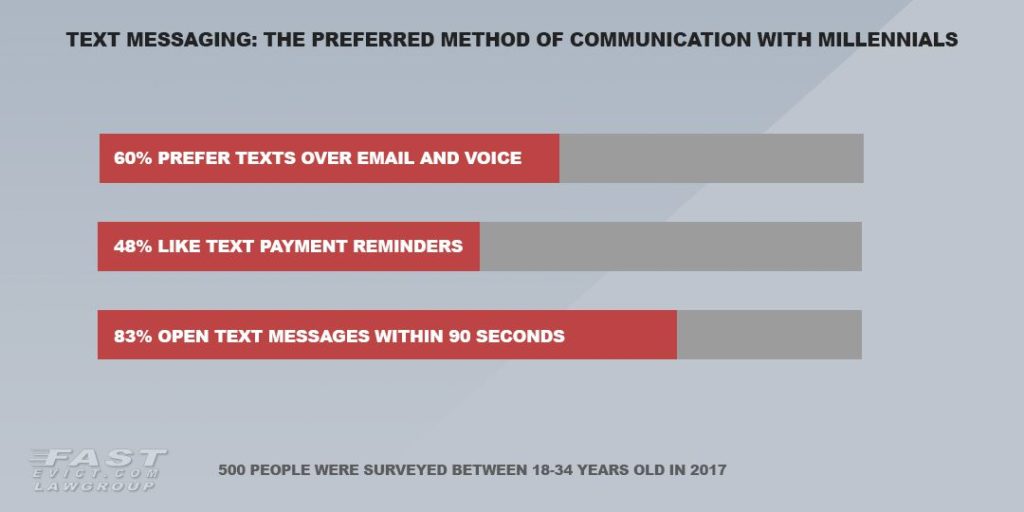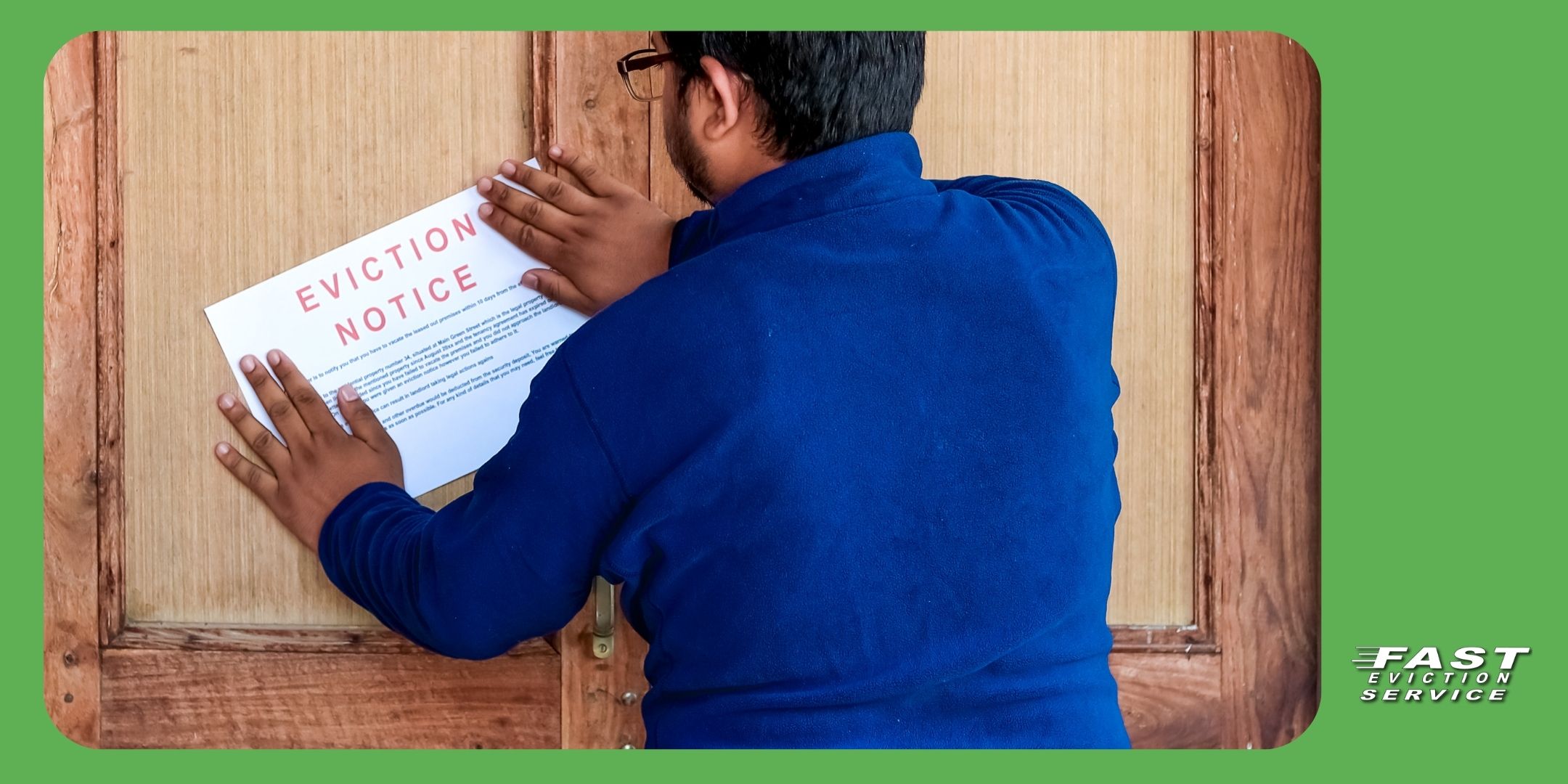Updated 8/6/24
How can you deal with a situation where you have a tenant not communicating with you? You think you’ve tried your best efforts to make it easy yet you get no response from your tenant. There could be dozens of different reasons why you would want to communicate with your tenant such as asking them what day would work for a routine inspection.

There could also be dozens of reasons why your tenant is not communicating with you. Maybe the way you try to communicate doesn’t work for them. Or maybe they don’t like the frequency in which you communicate with them.
Communication between landlords and tenants needs to be give-and-take where both parties understand that there needs to be compromise and mutual respect.
If you’re a landlord whose idea of top-notch communication is only showing up to collect rent, that may give you insight of a tenant not communicating.
Landlord and tenant relationships can get a bit tricky at times, but communicating shouldn’t be an issue. If you are going through issues where a tenant is not responding to a landlord, here are 10 ways you can improve your communication.
Set channels of communication from the start
When your new tenant is signing their lease, you can have an additional sheet of paper that specifies a list of acceptable ways you can communicate with your tenants. Some ideas include:
- Text message
- Old fashioned phone call
- Facebook Messenger
These should pretty much cover all of the different popular forms of instant communication. If your tenant comes up with another idea, you can make reasonable accommodations.
If your tenant, however, refuses to select any of the above and insists on only being able to communicate through twitter, you can politely ask them to be a bit more cooperative as this method wouldn’t work for you.
This also sets the tone to your tenant that you are easily available through many different channels and are flexible. Your tenants will build trust and feel very comfortable contacting you.

Specify communication frequency
I always insist on trying to prevent problems before they ever happen. If you can specify how often you plan on communicating with your tenant when your tenant signs their lease, this can reduce the chance of creating tension between you and your tenant. A good way of preventing a tenant not communicating issue is to provide a list of required communication, along with non essential communication optional checkboxes.
This will allow the tenants to choose what types of communication they’ll receive. Think of it as a newsletter signup with your email! Here’s an example:
| Required Communication | Optional Communication |
| • Figuring out inspection/repair schedules • Past due rent • Emergency situations • Interruption of services | • Rent reminders • Community events • Other non essential communication |
Take care of maintenance requests quickly
There’s no quicker way to build tenant trust and improve your relationship than being a responsible landlord. When you quickly address maintenance requests, your tenant will be open to maintaining healthy communication with you. Landlords can also create a list of pre authorized emergency repairs and provide contact information for those trusted providers. Some of these emergencies can include:
- Major gas or water leaks
- Broken window repairs
- Locksmith service
Another benefit of quickly taking care of maintenance requests is minimizing the possibility of running into habitability issues, which you want nothing to do with.
Use a rent payment service
We’re in an era where collecting rent issues shouldn’t exist. Landlords now have a plethora of options to accept online rent payments. Using a service like Cozy, creates an additional layer to a lot of your tenants. Not all may want to use it, but some will.
This lets your tenants know you are open to make reasonable accommodations. Another great benefit of using these services is automatic payment scheduling and these services send reminders and messages straight to your tenant.
It’s OK to go the extra mile
Being nice is free. You can always go just a little further. People like feeling important and although it’s easy to forget, your tenants are people too! Here are some ideas on how you can go the extra mile to make your tenants feel good.
- Drop a birthday card in your tenant’s mailbox.
- Send a fruit basket to tenants have paid their rent on time for 6 months straight.
- Consider giving rent rebates when amenities are out of service.
Tenant not communicating: What to do now
As i mentioned at the very beginning, it’s a lot more convenient to prevent landlord/tenant disputes from the very beginning by being open about what you expect from your tenant and hearing their concerns.
Nevertheless, that plan sometimes doesn’t work out and you get into awkward situations with your tenant.Once you have an unresponsive tenant, you want to quickly try to fix it. Here are some additional tips on what to do after your tenant stops responding to your communication attempts.
Find a mediator
Find a neutral mediator who is willing to help. This should be someone who your difficult tenant gets along with. You can start by using them to figure out why they stopped communicating and what I would take to make things right. A lot of times, these issues are caused by a misunderstanding.
Write a letter
Once you get to the point where a tenant isn’t communicating with you, it’s time to write a letter and drop it in their mailbox. The letter should state why being able to communicate is so important. Remind them that:
- Landlords need to be aware of maintenance issues.
- You are both adults, and this is business.
- Both of you don’t need to be friends, only cordial.
- You are willing to respect their wishes as long as they honor the rental agreement.
Unresponsive tenants can be costly
You can get into serious legal trouble if you can’t figure out a way to get through to a tenant. The longer you ignore the situation, the more likely the tenant can find ways to sue you or evade an eviction. Habitability issues in California should not be taken lightly.
What other ways have you tried to get through to difficult tenants?



